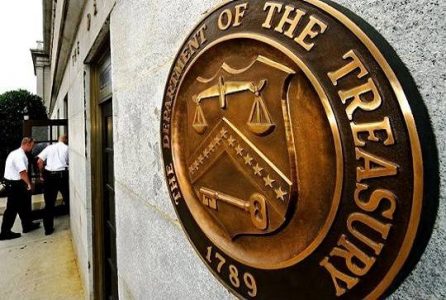
U.S. Treasury targets terrorism, money laundering and tax fraud with proposed beneficial ownership rules
The Corporate Transparency Act of 2020 (the “CTA”) was enacted in January 2021 as part of the Anti-Money Laundering Act of 2020 to prevent the use of shell companies to evade anti-money laundering and economic sanctions laws.
The CTA requires specified entities to report beneficial owner information and entity applicant information to the U.S. Treasury’s Financial Crimes Enforcement Network (FinCEN) upon formation or registration in the U.S. On December 7, 2021, FinCEN issued a proposed rule (“Proposed Rule”) that would implement the beneficial ownership information reporting provisions of the CTA.
The Proposed Rule specifies who must file a beneficial ownership report, the information that must be provided in the report and the deadline for filing the report.
In particular, the Proposed Rule would require reporting companies to file reports with FinCEN that identify (1) the beneficial owners of the entity; and (2) individuals who have filed the application with governmental authorities to form the entity or register it to do business.
The Proposed Rule identifies two types of reporting companies – domestic and foreign.
– Domestic Reporting Company: includes a corporation, limited liability company, or any other entity created by the filing of a document with a secretary of state or similar office under the law of a state or Indian tribe.
– Foreign Reporting Company: includes a corporation, limited liability company, or other entity formed under the law of a foreign country and that is registered to do business in any state or tribal jurisdiction.
The Proposed Rule excludes 23 types of entities that are currently subject to federal or state regulation (e.g., banks, broker-dealers, insurance companies and investment companies) as well as companies that (1) employ more than 20 full-time employees in the U.S., (2) have an operating presence at a physical office in the U.S., and (3) filed a federal income tax or information return for the previous year demonstrating more than $5 million in gross receipts.
Under the Proposed Rule, a “beneficial owner” would include any individual who, directly or indirectly, through any contract, arrangement, understanding, relationship or otherwise:
– exercises substantial control over a reporting company, or
– owns or controls at least 25% of the ownership interests of a reporting company.
Activities that could constitute “substantial control” of a reporting company include:
– acting as a senior officer;
– exercising authority over the appointment or removal of a senior officer or a majority or dominant minority of the board of directors;
– exercising direction, determination or decision of, or substantial influence over, important matters affecting the reporting company (e.g., selection of major business lines or ventures, major expenditures or investments, amendments to material governing documents); and
– exercising any other form of substantial control over the reporting company.
Ownership interests include equity interests, capital or profits interests, any proprietary interest, convertible interests, options and debt instruments (in certain cases).
In the case of a domestic reporting company, the Proposed Rule defines a company applicant to be the individual who files the document that forms the entity. In the case of a foreign reporting company, a company applicant would be the individual who files the document that first registers the entity to do business in the U.S.
In both cases, the Proposed Rule specifies that anyone who directs or controls the filing of the relevant document by another would also be a company applicant.
The Proposed Rule requires a reporting company to identify itself and report four pieces of information about each of its beneficial owners and company applicants: name, birthdate, address, and a unique identifying number from an acceptable identification document (and the image of such document).
Under the Proposed Rule, the due date for submission of a reporting company’s beneficial ownership information report will depend on (1) when the reporting company was created or registered, and (2) whether the report at issue is an initial report, an updated report providing new information, or a report correcting erroneous information in a previous report.
Reporting companies created before the effective date the Proposed Rule becomes final would have a year to file their initial report. Reporting companies created or registered after the effective date would have 14 days after their formation or registration to file.
Reporting companies would have 30 days to file updates to their previously filed reports, and 14 days to correct inaccurate reports after they discover or should have discovered the reported information is inaccurate.
Once the final rule regarding beneficial ownership information is enacted, many small corporations, partnerships and limited liability companies will be required to file information on their beneficial owners and those individuals who file applications on behalf of those entities.
The comment period for the Notice of Proposed Rulemaking ends February 7 which means the Proposed Rule could be finalized by the end of calendar year 2022. If so, reporting companies in existence prior to 2023 will have to start reporting beneficial ownership information by the end of 2023.
Source: JD Supra





